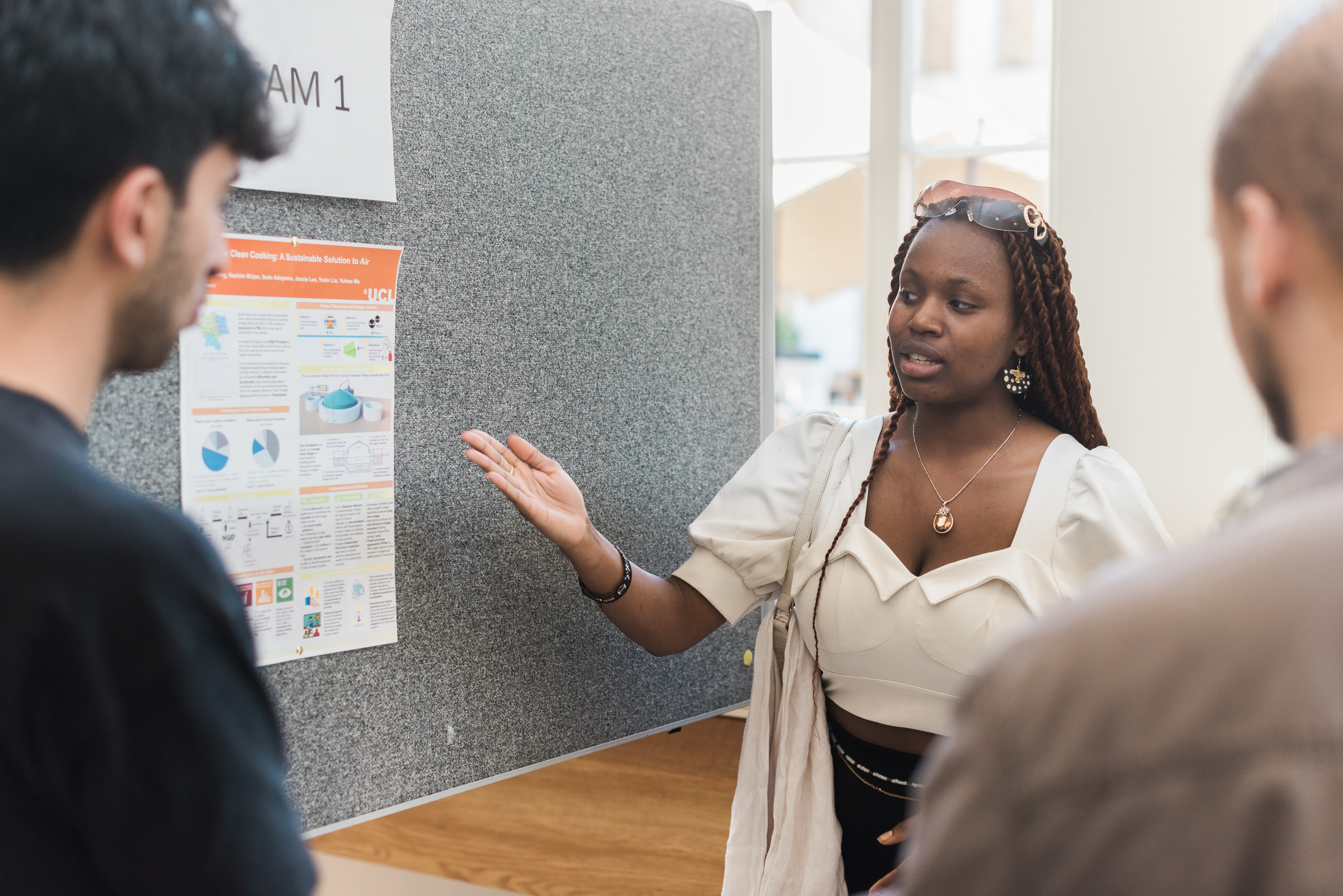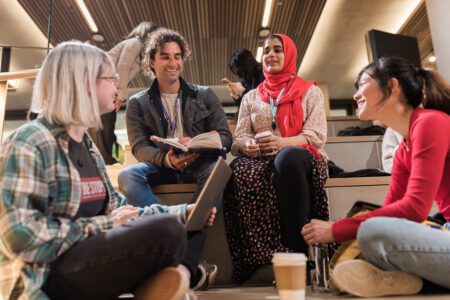Fareedah Oyekan, from Lagos, Nigeria, always knew she didn’t want to be limited by a single discipline. “I wanted a course that wouldn’t force me to choose between my passions for science, engineering, and social impact,” she says. Shunsei Kobayashi from Japan shared a similar perspective. Having taken Geography, Physics, and Maths as Higher Level subjects in the International Baccalaureate (IB) programme, he was eager to find a degree that would allow him to integrate these diverse interests.
They both found what they were looking for in the BSc Science and Engineering for Social Change at University College London’s (UCL) Department of Science, Technology, Engineering and Public Policy (STEaPP). It empowers students to bridge science, engineering, and public policy to address global challenges. Kobayashi’s decision came with another bonus: UCL’s #9 global ranking helped him secure a government scholarship.

STEaPP faculty are approachable and genuinely interested in student growth. They give helpful feedback that supports students learning and growth. Source: University College London
Learning to think differently
In their second year of their three-year programme, Oyekan and Kobayashi’s understanding of engineering and social science has evolved in unexpected ways. “I would say that my perception of engineering was very limited to the typical engineering innovations that we see every day,” says Kobayashi.
“In reality, those are not the only types of engineering that bring social change. I’m learning the essential skills to be part of the incremental change of society that utilises engineering knowledge and work with public and private sectors to deliver that change for a better society.”
This evolution in thinking is rooted in a curriculum that integrates technical knowledge with policy insight. Grounded in engineering and scientific principles, the programme extends into areas like policy design, governance, and systems thinking. Students are continually challenged to apply their learning to real-world issues — from climate resilience and urban infrastructure to sustainable development.
Oyekan points to a second-year project as a turning point: developing a Heatwave Resilience Strategy for the London borough of Newham. “We combined climate modelling, stakeholder mapping, and economic impact analysis to design a realistic and actionable plan,” she explains. “The project really challenged us to move beyond technical solutions and think about behavioural change, regulations, governance structures, and the consequences of inaction.”
Kobayashi’s transformative moment revolved around designing a community energy system for a rural village. “Understanding energy systems and different types of technology for energy monitoring as well as the socio-economic situation in the given context was important for the success of the project,” he says.
“This is just an example of where I combined engineering and policy thinking in a class. The interdisciplinary structure taught me to always take a step back in trying to understand the situation better, and the importance of choosing the issue we are trying to tackle.”
The power of peer learning
For Oyekan, adjusting to the interdisciplinary nature of the programme wasn’t without its challenges. “It wasn’t until we had more in-depth discussions inside and outside class that things started to connect better,” she says. “I began to realise that many of the ideas we were exploring were things I’d been reflecting on previously — just now framed in new, thought-provoking ways.”
A key source of support came from the programme’s close-knit student community. With a cohort drawn from diverse academic and cultural backgrounds, students routinely learn as much from each other as from the curriculum itself. These peer interactions — whether through collaborative projects or candid debates — create an environment where ideas are constantly tested, refined, and strengthened.
“The faculty offers socialising sessions with my peers and with students from other cohorts, which helps us rewind and make new friends,” adds Kobayashi. “They also regularly invite inspiring speakers who offer fresh perspectives beyond the classroom. It really broadens how we think about the course and our future careers.”

Courses cover policy, project management, engineering, and more, with classroom discussions that connect things better. Source: University College London
Ready for what’s next
One of the programme’s most distinctive strengths is its integration of real-world experience through a third-year placement or project. These opportunities help students grow their professional networks and gain insight into career pathways aligned with their interests. For Oyekan, this meant taking part in the Policy Co-Design Workshop with Waltham Forest Council — an initiative co-developed by her module lead in collaboration with the Bartlett and the local authority. As part of the project, she helped lead community-focused sessions aimed at reimagining local library services.
“It taught me the importance of humility in design — the power of creating with people, not just for them,” she says. “It completely reshaped how I approach problem-solving.”
Such hands-on experiences have had a lasting impact on how both Oyekan and Kobayashi view their professional futures. “This programme showed me why it’s important to apply knowledge with care,” Kobayashi shares. “I’ve gained skills in critical thinking, analysis, and intellectual depth, which are critical in any career path.”
Oyekan, meanwhile, is exploring roles at the intersection of sustainable development, policy, and the built environment. Both feel equipped to step into advisory or interdisciplinary positions where systems thinking and technical fluency are equally valued.
For students still figuring out their path, they offer valuable guidance. This is not a conventional engineering degree. Instead, it’s a programme designed for those who want to understand the dynamics of change — how science and engineering can be applied effectively, ethically and collaboratively.
Kobayashi adds, “If you’re expecting a conventional engineering programme, it might be worth considering your options. But for anyone curious about how social systems work, and how we can apply that thinking to real-world challenges, this course is a great fit.”
Follow University College London on TikTok, YouTube, Instagram, Facebook, LinkedIn, and X













